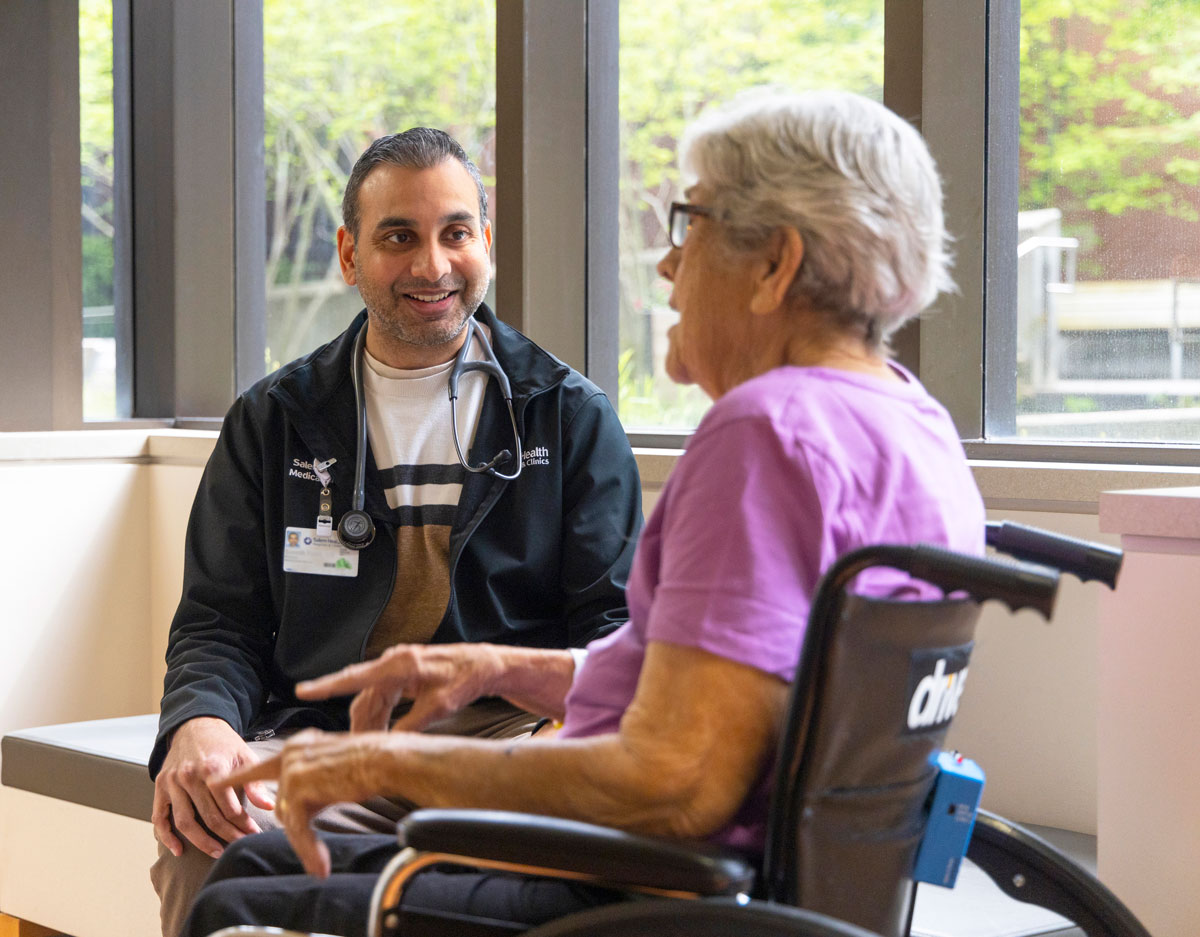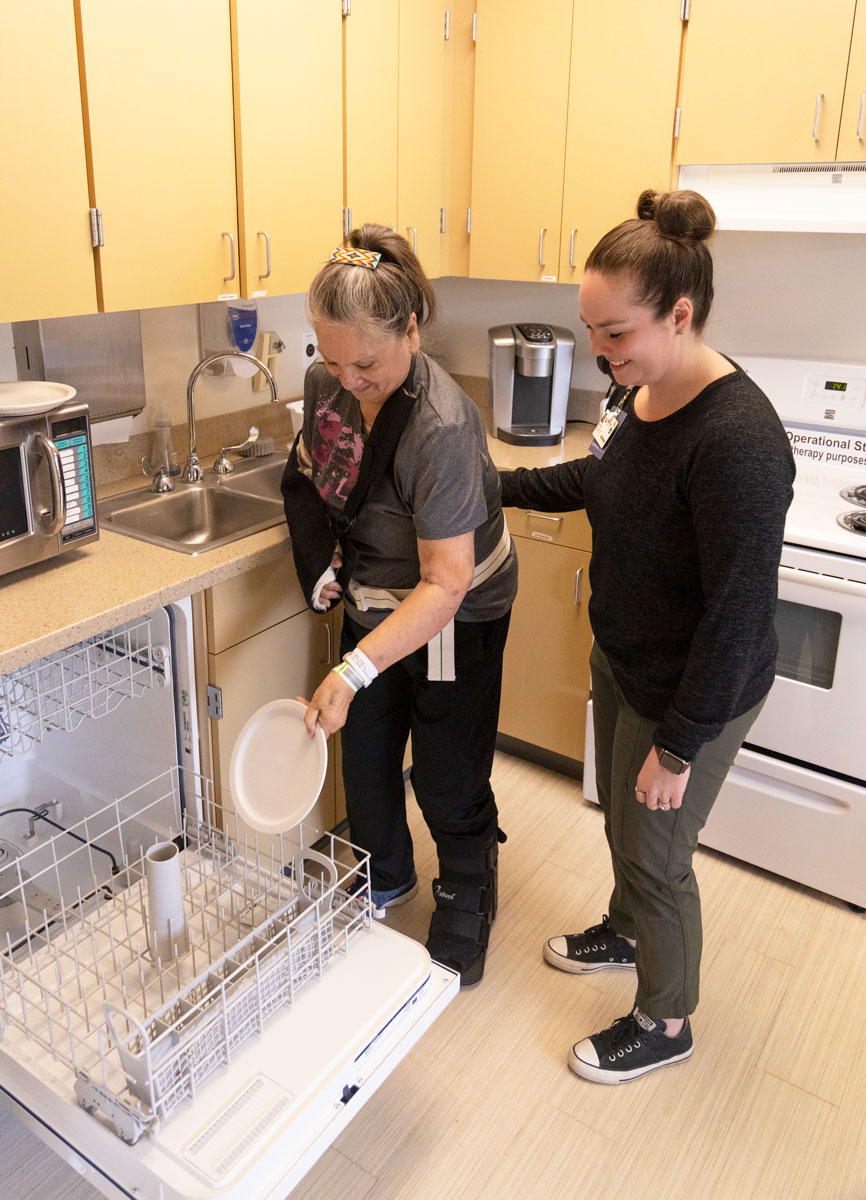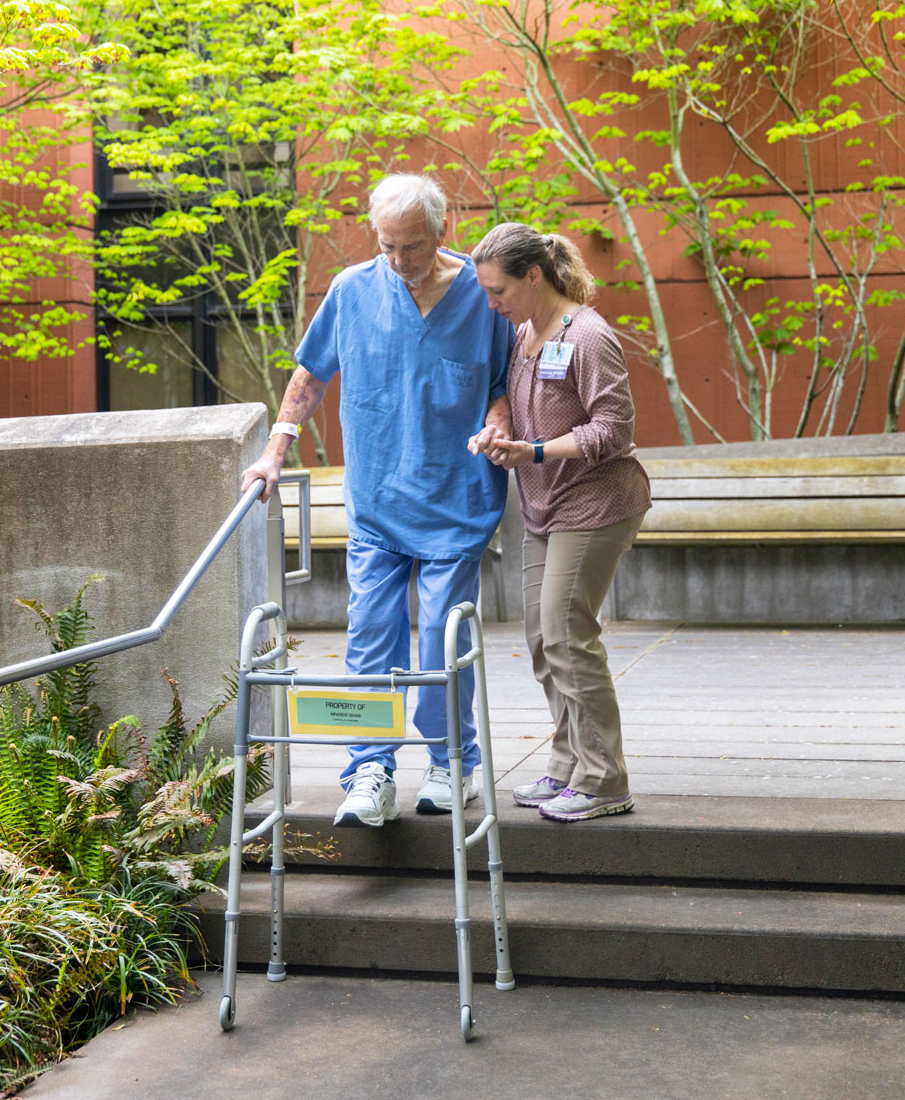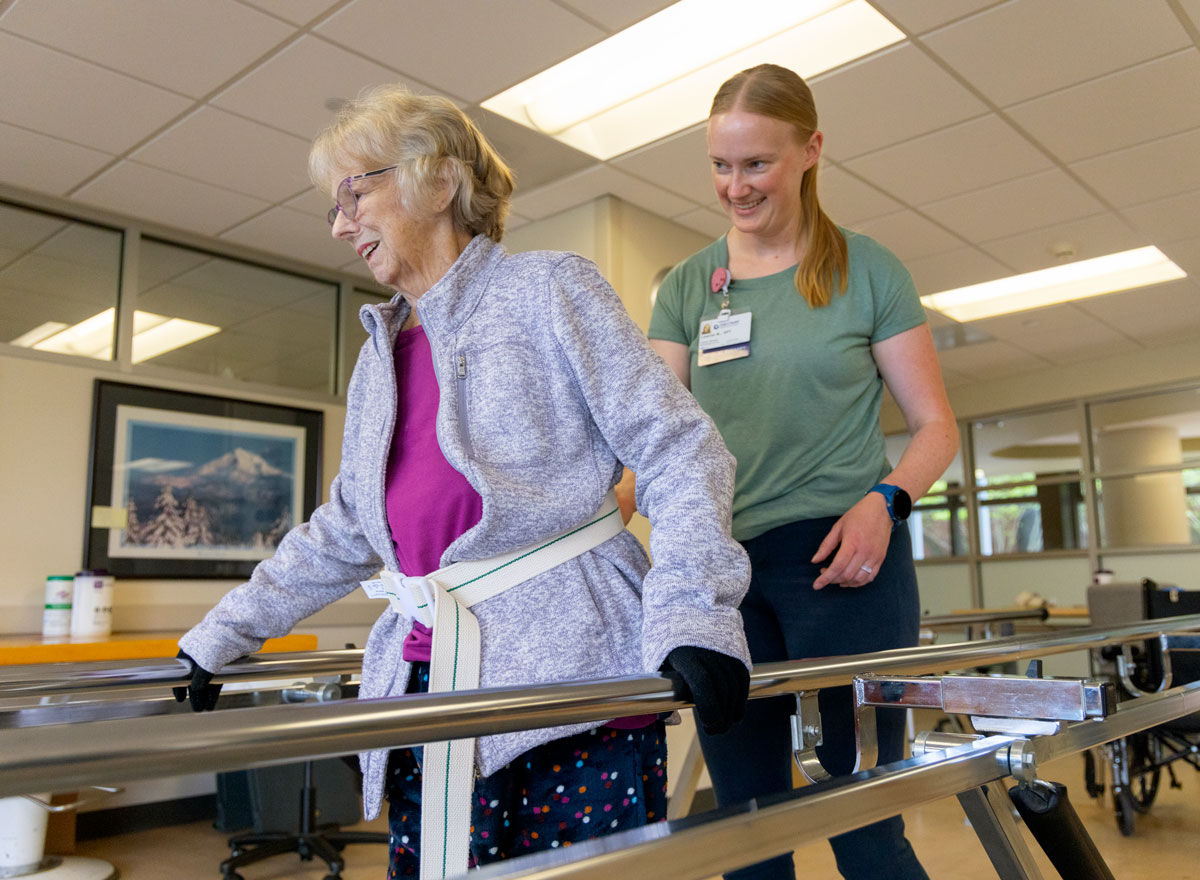Salem Health inpatient rehabilitation
Salem Health’s comprehensive inpatient rehab program is the only one of its kind in the mid-Willamette Valley — serving Marion, Polk, Linn, Benton, Lincoln counties and beyond.
Our program is designed for people who require short-term (one to three weeks), comprehensive rehabilitative care following hospitalization.
|
Most of our patients are recovering from disabling
We help patients achieve the maximum level of independence. We provide around-the-clock nursing care. Patients will receive three hours of rehabilitative therapy a day, five to six days a week. That is two to three times more therapy than provided in a typical skilled nursing facility. Call 503-814-9211 to learn more.
|

The benefits of our approach
We know people experiencing disabling conditions or injuries are often anxious and fearful about what the future holds. So our team takes a holistic approach to care and treatment by addressing both physical and emotional well-being.
- 24-hour rehabilitation nursing care and pain management.
- Supervision by a physiatrist, a physician with specialty training and medical board certification in rehabilitation medicine.
- Intensive rehabilitation, Monday through Saturday, from physical, occupational and speech therapists.
- Care managers to assist with individualized discharge planning (helping patients and families answer, “What comes next?” when they leave the hospital).
- Licensed clinical social worker for emotional support and discharge planning.
- Individual rooms with nursing observation cameras.
- State-of-the art rehabilitative equipment, including a body-weight support treadmill.
- Ongoing therapy available in an outpatient setting at the nearby Salem Health Rehabilitation Center.
- Nurse-to-patient ratios are low allowing maximum nurse support to each patient.
- Individual rooms with nursing observation cameras.
- Additional expertise as needed in the areas of incontinence, balance, driving, nutrition, diabetes, assistive devices and more.
- Build strength, balance and stamina while developing motor skills.
- Increase independence by practicing daily activities in an apartment environment that simulates home.
- Safely practice moving on a variety of surfaces and learn how to handle adaptive equipment in the therapy courtyard.
Real-life therapy environments
Practice apartment
The goal of inpatient rehabilitation is to prepare patients to live independently, even with long-term disabilities. To help patients adjust and practice in a realistic setting, our inpatient rehabilitation program has designed home-style rooms, including a bathroom, a bedroom, a kitchen and a living room.
Therapists demonstrate — and patients practice — many common activities of daily living, such as:
- Getting in and out of a tub, safely.
- Reaching high kitchen cupboards from a wheelchair.
- Loading a dishwasher.
- Getting up from a soft sofa and bed.
- Using a washer and dryer from a wheelchair.
- Cooking and cleaning safety.
The practice apartment provides a realistic environment for our doctors and therapists to assess a patient’s readiness to return home.

Therapy courtyard
To further assist in patients’ recovery, the outdoor therapy courtyard includes slopes, stairs, outdoor furniture (including a built-in bench), pea gravel, lawn and planting tables. The courtyard is a safe, serene, private place for patients to learn to adjust to different surfaces, improve large and small motor skills and work with new equipment such as wheelchairs, walkers or canes.
Located in the center of the rehabilitation unit, the therapy courtyard offers a respite for family and friends of patients as well.

Gym
Our specialized rehab gym allows patients to improve their strength and coordination during their stay. In addition, practice equipment for navigating stairs and other daily situations helps build patients' confidence.

Dining
We work to ensure mealtimes are a safe, supervised and structured activity where our trained staff can model and observe swallowing, if necessary.
We also provide an opportunity for patients to practice ordering meals and learn swallowing precautions with their family members. Our staff strive to provide support to reduce anxiety, increase independence and facilitate a safe transition home.
